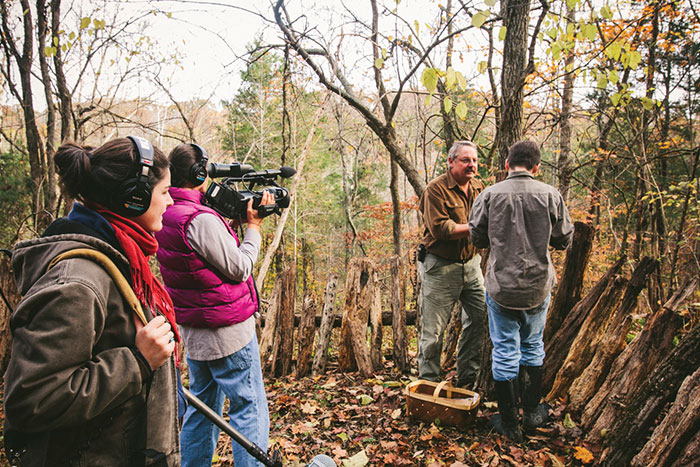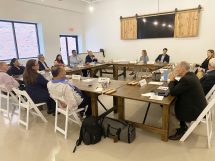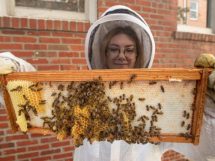By Matt Wickstrom

For nearly 50 years, Appalshop has been working to break stereotypes and report on authentic people and their struggles and triumphs living in Appalachia. According to its website, the Whitesburg-based nonprofit helps reimagine the Eastern Kentucky and Appalachia region by bringing forth new and often unheard voices and visions from the region’s people to demonstrate the power of arts and culture in creating meaningful social and economic change.
Alex Gibson, Appalshop’s executive director since 2014, says the organization began in 1970 after the U.S. Office of Economic Opportunity provided funding as part of efforts by then-President Lyndon B. Johnson and the Equal Employment Opportunity Commission to help the region diversify from fossil fuel extraction and change its perception among others outside the region.
A storytelling element driven by first-person narratives was born, relating the stories of coal miners, fast-food workers, truck drivers, activists, teachers, students, artists and others. It happens via video, radio on the Appalshop-owned WMMT, and live performances in its 150-seat theater.
“At the time, there were a lot of misrepresentations and characterizations of the region from people outside of the region,” Gibson said. “Think ‘Green Acres,’ ‘Hee-Haw’ and ‘The Beverly Hillbillies.’ ”
While Appalshop’s mission has altered over time due to technology, socioeconomic changes and other factors, Gibson said, the heart of it hasn’t changed. The organization continues doing everything it did upon its founding with no intent of deviating. To prepare and train a new generation of Appalachians in the art of storytelling, Appalshop runs a youth media training program out of its Boone Building, which was repurposed from a former car dealership building.
The program trains people to operate video equipment, tell stories and teaches photo, video and other advanced computer editing while it gets “students” to think critically and argue about the region as a way to construct impactful ideas and methods to address the problems they face.
Lending a hand to Appalshop’s youth media training program and other facets of the operation is a staff of 18, set to grow soon to 22. One man who spent considerable time around Appalshop and giving back to his Eastern Kentucky community was the late Jim Webb, who died in October 2018. Webb, also known as “Wiley Quixote,” had hosted the radio show “Ridin’ Around Listening to the Radio” since 1985 on WMMT. The show developed a devout legion of fans due to Webb’s contagious, outgoing personality.
“I can’t overstate how important it is that people like Jim are part of our tapestry,” Gibson said. “Jim was quirky – very quirky – and very smart. He made everybody feel welcomed. I came to Appalshop four years ago and he treated me like a friend from the beginning and did the same for many others, opening up his home and himself to be the butt of a joke, as well as making a few himself.”
Appalshop has diversified revenue streams that are constantly fluctuating, according to Gibson. Currently the company receives 10 percent of its funding from earned income, 30 percent from federal and state taxes and grants, 45 percent from private foundations and 15 percent from individual donations. Gibson notes that current trends show government contributions on the decline and private donations on the rise. No matter the circumstances, Appalshop has adapted and thrived, providing a glimpse into the life of Eastern Kentucky and Appalachia like no other organization has done with any particular region before.
“To run a nonprofit in Appalachia on the scale of Appalshop, you cannot rely on any singular funding source,” said Gibson. “You need to be creative and leave your doors open to new ideas.”
Appalshop is currently in the midst of touring the state for its 50-year anniversary campaign. For more information and a schedule of events, visit Appalshop.org.




















Add Comment